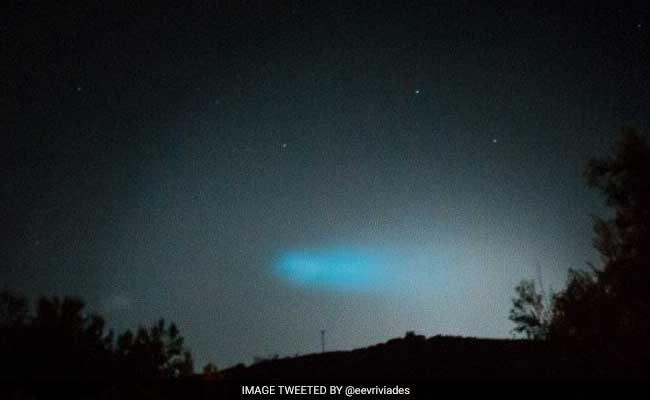A meteorite flew over the Mediterranean isle of Cyprus on early Friday, lighting up the sky and trembling the ground with a shock from its explosion.
It appears that parts of the meteorite fell north of the isle in the sea. People living in the vicinity of Troodos reported seeing green and white lights at 1 a.m., followed by loud explosions and Earth tremors. On the other hand, Cyprus police stated that witnesses saw a blue glow emanating from the celestial object. The meteorite was relatively small in size as it disintegrated while it entered the atmosphere above Cyprus.

A relatively small rock from outer space
According to Ioannis Fakas, chairman of the Cyprus astronomical society, the asteroid had a 45-degree tilt and should not have weighed “more than a few kilos.”
Although some may argue that it may or may not have been a meteorite, most experts agree that the object could not have crashed into the ground. Iordanis Demetriades, head of the Cyprus Geological Department, stated that the object most assuredly exploded before landing on Earth.

Even if it may be unusual, NASA suggests that at least 30 meteorites reach the Earth’s surface each year, but most of these land on the ocean or disintegrate before being noticeable by humans. The latest known event of this sort was a meteor that crashed on the shores of Brazil.
But this was a much tamer astronomical event. In 2013, a meteor exploded over the city of Chelyabinsk in Russia. The shock wave managed to damage buildings and injure over a thousand people.
Security cameras were able to film the surroundings as a flash emanated when the meteorite entered the atmosphere:
Meteor, meteorite or asteroid?
Meteors are rocks that fall through Earth’s atmosphere and start burning up, leaving a trail of light as they pass. When the meteor does not completely disintegrate on the atmosphere and at least a piece of space rock lands on Earth, it is then called a meteorite.
An asteroid, on the other hand, is a space rock that travels along its own orbit. Finally, comets are chunks of ice and rock that come from far away in the Solar System in elliptical orbits that can be predictable.
Meteorites can provide clues about outer space, as its age and composition often allow scientists to determine where did they come from and if they contain any feasible link to the formation of our galaxy.
On Thursday, NASA launched its OSIRIS-REx spacecraft, which is set to land on the Bennu asteroid, one of the few asteroids near Earth that contain carbon. Because Bennu contains carbon it may be at least 4 billion years old, which could provide important evidence about how life originated on Earth.
Contrary to planets, meteorites and asteroids have not experienced processing. As a result, they remain intact since the Solar System formed. When scientists analyze a meteorite, they are looking at the chemical composition of the Solar System, which was formed 4.6 billion years ago.
Source: Reuters

I love these junk news sites that (badly) rewrite articles from other sources and then publish them. Google shouldn’t even index shite like this.
Trump’s fault